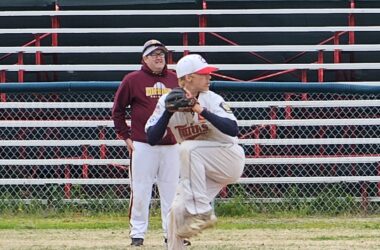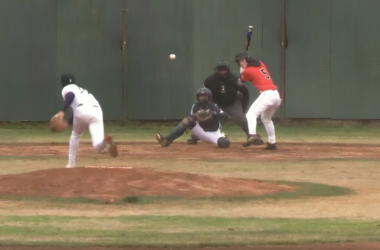The Kenai Peninsula Borough School District on Sunday elevated its risk level to “high risk red” which called for the immediate halt of all summer, extracurricular activities and facility usage.
The risk level is based on the recent spike in COVID-19 positive testing in the state of Alaska and on the Kenai Peninsula.
KPBSD Assistant Superintendent Dave Jones explains the district’s move to the high risk red designation.
“What’s happened is the number of coronavirus cases on the Central Peninsula over the last 14 days has been increasing and they reached the point where went from intermediate yellow to the high alert level and when we do that, according to ASAA regulations and our Smart Start plan regulations, there’s some activities that are curtailed because of greater risk of the spread of the coronavirus. We had been operating at yellow or medium level which we can have a mitigation plan and do things to keep people distanced under yellow; the guidance is when we’re at the high risk red then there are no activities.”
Jones also explained the monitoring of the current numbers; basically on a 14-day scale.
“We track it on a daily basis. We have a couple charts. The one shows how many cases we have a day over the last 14 days in our communities the state tracks. We look at it on a regional basis. What needs to happen is we need to have these numbers starting to drop each day or have no cases each day; as we would add days with zero count or one and lose days with four or five, then we would move back into or have the potential to move back into yellow intermediate range or eventually what we’d like to be is in the green range.”
After an early summer spike, Homer is right in the green level as their numbers have decreased for the last 14 days.
“That’s what’s happened in Homer. After the Memorial Day weekend, they had an onslaught of cases, they went to red and weren’t able to have activities down there. They transitioned slowly out of red and transitioned into green because they’ve had a very small amount of cases down there.”
The KPBSD hopes are for a small number of cases in the immediate future and the opening of all activities and the opening of schools on time.
“We’re hoping that people will start realizing that their activities effect not only them but it effects the ability to have activities and school as well on the community. So, we’re hoping that people will do a better job of social distancing and protocols of washing the hands and wearing the face masks when they’re out in the public if they can’t maintain the six-foot distance. Those type of activities and so we hope to see that our chart will start going back down and we’ll be able to resume activities again.”
Additional details on risk levels:
Red Risk Level calls for the immediate closure of facilities. High Risk Level is reached based on average daily incidence over the past 14 days: 10 cases per 100,000 population (pro-rated by population). Widespread community transmission with many undetected cases and frequent discrete outbreaks are also determining factors.
Kenai Peninsula Borough Population Numbers (for determining risk levels) & Risk Levels per 14-Day Period
Kenai Peninsula (total) 58,367 High Level= 82 and above Medium Level= 42 to 81 Low Level=41 and under
South Peninsula 14,012 High Level= 20 and above Medium Level= 11-19 Low Level=10 and under
Central Peninsula 37,096 High Level= 52 and above Medium Level= 27 to 51 Low Level=26 and under
Eastern Peninsula 5,110 High Level= 7 and above Medium Level= 5 to 6 Low Level=4 and under
Additional Individual Communities (see chart)
Risk Level Descriptions (statewide)
Scenario 1: Low Risk
Low Risk: Average daily incidence over the past 14 days: <5 cases per
100,000 population
Minimal community transmission
Buildings are open and learning is conducted with additional protocols
for health, safety, and continuity. Parents may select for students to
learn remotely.
Scenario 2: Medium Risk
Medium Risk: Average daily incidence over the past 14 days: 5-10 cases
per 100,000 population
Moderate community transmission with some undetected cases and
infrequent discrete outbreaks
Buildings are open with possible social (physical) distancing protocols
in place. Parents may select for students to learn remotely.
Scenario 3: High Risk
High Risk: Average daily incidence over the past 14 days: 10 cases per
100,000 population
Widespread community transmission with many undetected cases and
frequent discrete outbreaks
Buildings are closed to students and learning is 100% remote. Possible
exception for “vulnerable populations” of students individually or in
small groupings.
KPBSD Smart Start 2020 District Guidance: Click Here for guidance document






